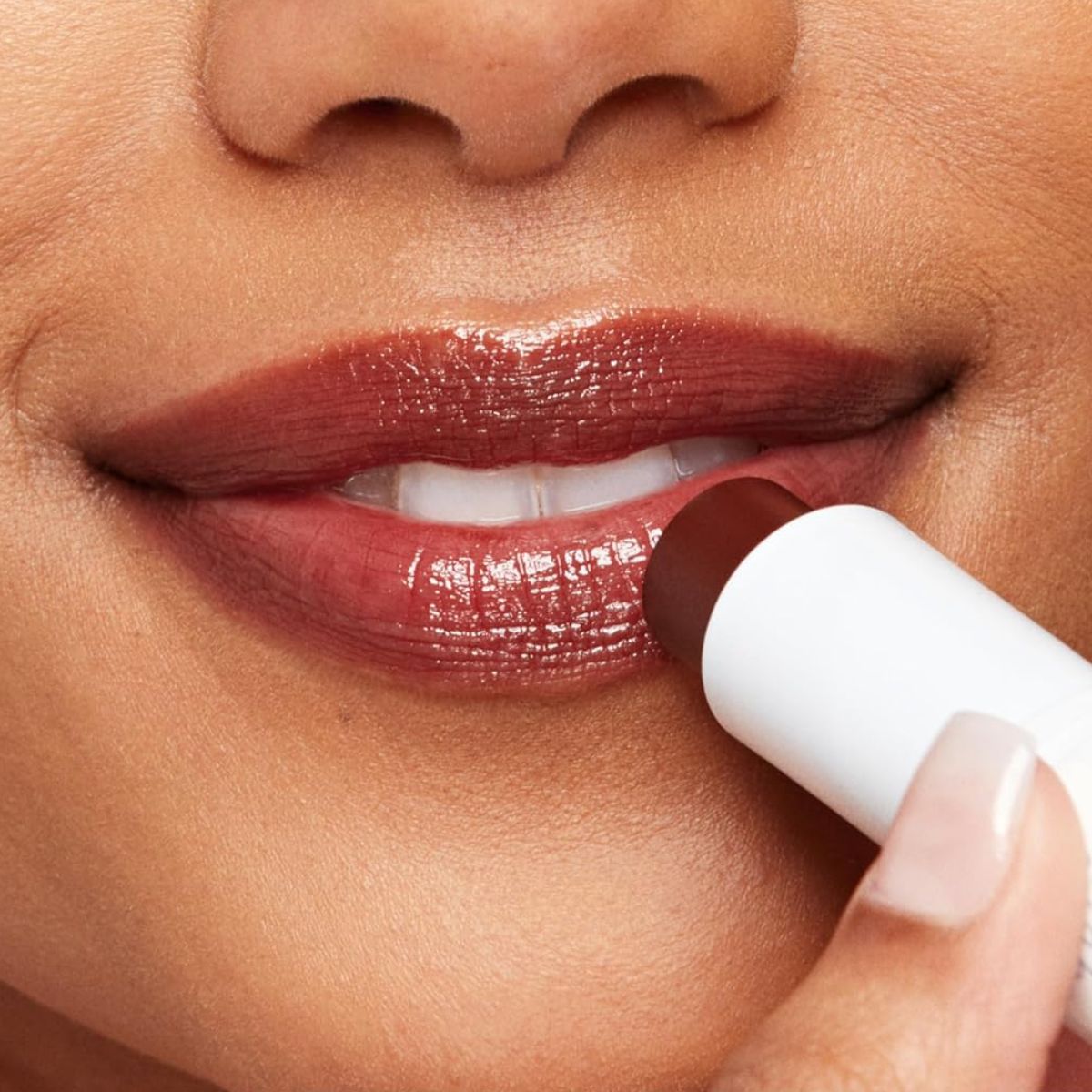Health
5 things every man should do at least once a week

In day-to-day life, it’s easy for men to neglect their well-being.
Balancing work, family, and personal commitments often leaves little time for self-care and personal development.
However, adding certain activities to your weekly routine can significantly enhance your physical health, mental well-being, and overall quality of life.
Here are five things every man should do at least once a week:
1. Engage in physical exercise
Regular physical exercise is crucial for maintaining good health and vitality. It not only helps in managing weight and building muscle but also improves cardiovascular health and mental well-being.
Benefits:
– Physical health: Reduces the risk of chronic diseases such as heart disease, diabetes, and hypertension.
– Mental health: Releases endorphins, which improve mood and reduce stress and anxiety.
– Energy levels: Boosts energy and enhances overall stamina.
Whether it’s a gym workout, a run in the park, or a game of basketball with friends, make time for physical activity to stay fit and energised.
2. Practice mindfulness or meditation
Mindfulness and meditation offer a way to achieve mental clarity and reduce stress. Spending even a few minutes in quiet reflection can have profound effects on your mental health.
Benefits:
– Stress reduction: Lowers levels of cortisol, the stress hormone.
– Improved Focus: Enhances concentration and cognitive function.
– Emotional health: Promotes a sense of calm and emotional balance.
Add mindfulness or meditation into your weekly routine to improve your mental clarity and emotional well-being.
3. Connect with loved ones
Maintaining strong relationships with family and friends is essential for emotional health. Social connections provide support, reduce feelings of loneliness, and enhance overall happiness.
Benefits:
– Emotional support: Provides a network of people who can offer advice and support.
– Stress relief: Sharing experiences and feelings with loved ones can reduce stress.
– Happiness: Strong social bonds contribute to a sense of belonging and contentment.
Make it a point to spend quality time with loved ones, whether through family dinners, phone calls, or outings with friends.
4. Pursue a hobby or passion
Engaging in hobbies or activities you are passionate about can provide a welcome break from daily responsibilities and foster a sense of fulfilment.
Benefits:
– Creativity: Stimulates the brain and fosters creativity.
– Relaxation: Offers a chance to unwind and de-stress.
– Personal growth: Provides opportunities to learn new skills and improve existing ones.
Whether it’s painting, playing a musical instrument, gardening, or reading, dedicating time to your hobbies can enrich your life.
5. Plan for the week ahead
Taking time to plan your week can help you manage your time effectively and ensure you stay on top of your responsibilities.
Benefits:
– Organisation: Helps prioritise tasks and manage time efficiently.
– Goal setting: Allows you to set and achieve personal and professional goals.
– Stress management: Reduces the anxiety of last-minute tasks and deadlines.
Spend some time each week organising your schedule, setting goals, and planning activities to stay productive and reduce stress.
Adding these five activities into your weekly routine can significantly enhance your physical health, mental well-being, and overall quality of life.
By engaging in regular exercise, practising mindfulness, connecting with loved ones, pursuing hobbies, and planning your week, you can achieve a balanced and fulfilling lifestyle.
Prioritising these activities not only contributes to your personal growth and happiness but also helps you navigate the demands of modern life with greater ease and satisfaction.
Health
Sharing towels, Sleeping on dirty pillowcases…5 habits that could be damaging your skin

The skin is the body’s biggest organ and serves as a protective barrier against environmental stimuli. Taking care of your skin is vital for maintaining its health, but some regular practices might damage it over time.
Here are five common habits that might be harming your skin.
Inadequate Sun Protection
Although sunshine feels good on your skin, research has shown that too much of it (ultraviolet radiation from the sun) for a long time can lead to photoaging by breaking down collagen and elastin, leading to wrinkles, dark spots, rough texture, sagging skin, and an increased risk of skin cancer.
To keep your skin looking youthful and healthy for longer, wearing sunscreen daily, limiting sun exposure, and wearing protective clothes can help prevent photoaging.
Smoking
Health experts have warned that smoking negatively affects your health in many ways due to the harmful chemicals in cigarettes that damage the collagen and elastin proteins, break down fibres in the skin, and also slow down cell repair, thereby preventing the skin from being able to make new skin cells. This leads to deep wrinkles, sagging, and discoloured skin.
Nicotine, one of the harmful chemicals in cigarettes, reduces blood flow to your skin, which means it doesn’t get enough oxygen and nutrients, thereby contributing to the development of dark spots, scarring, psoriasis, spider veins, eczema, skin cancer, and other conditions.
Sharing towels
Skin rash, body acne, skin infections, and yeast infections are also some of the infections you can contact by sharing towels or not washing your home towel at least once a week and your gym towel every day after use.
Wash your face before bed
To protect your skin from acne, wrinkles, dullness, and aging, make it a habit to wash your body every night, no matter how tired you are. Doing this will remove the oil, bacteria, and pollutants that can build up after a stressful day.
For those who wear makeup, if you don’t remove it before bed, it will prevent your skin from renewing itself overnight, which can cause dullness and accelerate aging.
Also, prolonged face washing may destroy your skin’s natural oils, resulting in dryness, irritation, and even an overproduction of oil in an attempt to compensate. This can cause acne and an unattractive complexion. To maintain healthy skin, use a moderate, moisturising cleanser and only cleanse twice each day.
Sleeping on dirty pillowcases
Your skin might become irritated by sleeping on a dirty pillowcase, as it retains perspiration, oil, and bacteria from your skin and hair. It can affect the skin and lead to acne if it is not frequently cleaned. To preserve healthy skin, replace your pillowcases regularly.
Health
Six ways to tackle body odour in kids

Children generally are adorable and associated with a sweet, welcoming smell. This is why anything short of this, like a body odour, gives cause to raise an eyebrow.
Worried about your child emitting some funny smells and seeking a sure remedy to the situation?
1. Help your kid(s) maintain good hygiene
Lack of proper hygiene, dirty armpits and groin areas topped with irregular bathing, are common causes of body odour. In fact, double should be your worry if yours is an active kid.
The bacteria accumulated in the clothes stick to the sweat and add to body odour. This is why the first step to take when looking to tackle body odour in kids is to help them augment their personal hygiene.
In addition, kids can be pretty vulnerable to teasing, so you want to do your best to help them try to prevent it.
Regular bathing is key to dealing with it, including a thorough scrub under the arms.
If your child has reached the age where he/she may no longer want a parent to bathe them, what they probably need is some encouragement and pointers to do a thorough job themselves.
Make sure your kids wear clean clothes which are washed and dry. Discourage them from repeating clothes.
Ensure they wear shoes that are clean and dry, as wet shoes could result in infections. Finally, encourage your child to stay hydrated and drink lots of water.
2. Introduce them to deodorant/antiperspirant
For some kids, bathing won’t be enough to keep the body odour at bay throughout the day, especially if they’re active.
In such a case, deodorant or antiperspirant is recommended. Deodorants act by covering up the smell of sweat, while antiperspirants actually stop or reduce the amount of sweat produced.
Now, while there isn’t any medical concern with kids using deodorants or antiperspirants, it is still relevant that you may have your reservations about this option.
If so, consider the several naturals; unscented products in the market, including deodorant crystals and baking soda-based products. Or even better, you can make a deodorant with rosemary.
Rosemary contains menthol and chlorophyll, acting as natural deodorants to tackle odour-causing bacteria.
All you have to do is simply boil a cup of rosemary leaves in a cup of water and add to your kid’s bathwater.
The other option is to add a few droplets of rosemary oil to the bathwater.
3. Look into food habits
What goes in comes out in a distasteful manner. After digestion, some food seep into the pores of the skin and create an odour, meaning that the food consumed not only affects our breath but body odour too.
Some common food that is said to cause body odour in kids and adults are:
Red meat which has an amino acid called carnitine, garlic and onions, milk and dairy products take a longer time to digest, excess consumption releases methyl mercaptan and hydrogen sulphide, causing a foul smell.
Fish, eggs, cabbage, legumes, processed food, and foods that lack fibre.
Try replacing cow’s milk with organic, soy or almond milk, and increase the intake of fresh, green leafy vegetables and include aromatic herbs like basil, sage and rosemary in their diet.
Chlorophyll in plants is a nature-given body cleanser.
The battle of tackling body odour in your kid(s) is one that must be won on all fronts.
4. Blame it on puberty
If your child is closer to puberty attaining age, then body odour is really no reason to get worked up. Girls reach puberty between 9 and 14, while boys are between 12 and 15.
During this phase, their bodies undergo a lot of hormonal changes leading to changes in their physical appearance and behaviour.
Their sweat glands work overtime, which provides an explanation for why they might have a body odour.
Early sexual maturation in kids is another reason for body odour.
5. Consider an underlying medical condition and see a doctor.
A very distinct body odour in your child could be pointing to an underlying medical condition like a kidney or liver-related ailment, diabetes, inflammation of organs, etc.
If your child is sweating profusely then they may have hyperhidrosis (a medical condition with the primary symptom of excessive sweating, in excess of that required by the body temperature).
Either way. it is necessary to seek medical intervention as soon as possible.
6. Consider some home remedies
Consider home remedies like the application of lemon juice in bathwater.
The juice of lemon increases the pH levels of the body and keeps it dry thereby preventing the growth of bacteria. Squeeze, and add a few drops to the bathwater.
Alternatively, you can simply apply lemon juice to sensitive areas.
Dilute a spoonful of lemon juice with a cup of water and dab it on your child’s armpits with a cotton ball soaked in the concentrate.
Leave it for ten minutes, and then rinse it with water.
Another home remedy to tackle body odour in children is to cleanse with apple cider vinegar.
So, dab a cotton ball soaked in apple cider vinegar on the parts of the body that sweat for a few minutes before a bath.
Repeat this procedure twice a day before bath for happy results.
Health
5 benefits of using lip balm daily

Lip balm might seem like a small item, but it can have a big impact on how your lips feel and look. It can help keep your lips healthy, soft, and protected.
Lips are a sensitive part of our body and can easily get dry, cracked, or chapped. Unlike other parts of the skin, lips don’t have oil glands, which means they can’t produce natural oils to stay moist. This makes it important to take care of them with the right products, like lip balm.
Here’s why using lip balm every day is a great idea and how it can help you maintain beautiful and healthy lips.
1. Keeps your lips moisturised
One of the most important benefits of using lip balm is that it helps to keep your lips moisturised. Since lips don’t have oil glands, they rely on outside help to stay hydrated. Lip balms often contain ingredients like shea butter, coconut oil, and beeswax, which help lock in moisture.
This can stop your lips from feeling dry and uncomfortable. By applying lip balm every day, you ensure that your lips stay soft and smooth, especially during cold or dry weather when they are more likely to become chapped.
2. Protects your lips from the sun
Just like your skin, your lips can get damaged by the sun’s harmful rays. Many lip balms have SPF (Sun Protection Factor), which can help shield your lips from ultraviolet (UV) radiation. Sun exposure can cause your lips to become sunburned, causing dryness and peeling.
3. Helps heal cracked lips
Cracked lips can be painful and annoying. They can happen because of cold weather, wind, or not drinking enough water. Using lip balm can help heal these cracks faster. Lip balms create a protective barrier on your lips, preventing further damage and allowing them to repair. Ingredients like vitamin E and aloe vera are often found in lip balms, which help soothe and heal cracked lips. Applying lip balm daily can prevent cracks from appearing in the first place.
4. Makes your lips look healthier and plumper
Using lip balm every day can make your lips look healthier and fuller. Moisturised lips naturally appear more plump and vibrant. Some lip balms even have a slight tint or shine that can enhance the natural colour of your lips, making them look more attractive without needing any other makeup. Healthy, well-moisturized lips can boost your confidence and make you feel good about your appearance.
5. Prevents premature ageing of lips
Just like the rest of your skin, your lips can show signs of ageing, such as fine lines and wrinkles. By keeping your lips moisturised and protected, you can prevent premature ageing.
Lip balms with antioxidants like vitamins C and E can help fight free radicals that cause ageing. Regular use of lip balm keeps your lips looking young and fresh, helping to avoid the signs of ageing before they start.
So, keep a lip balm handy and make it a habit to apply it every day. Your lips will thank you for it!
-

 News1 week ago
News1 week agoLagos state government urges Ogun Riverbank residents to prepare for relocation amid Oyan Dam water release
-

 Celebrities3 days ago
Celebrities3 days agoGod will continue to expose them, Angela Okorie tells Apostle Suleman after Halima’s apology
-

 World1 week ago
World1 week agoHamas leader Yahya Sinwar killed in Gaza military operation, says Israel
-

 World1 week ago
World1 week agoKenyan deputy president impeached while hospitalised
-

 News2 days ago
News2 days agoLagos state government announces traffic diversion for installation of truck barriers at Ojuelegba Bridge
-

 Sports1 week ago
Sports1 week agoBrazillian football star Vinicius suffers heartbreak as DNA test shows daughter isn’t his
-

 Business1 day ago
Business1 day ago“OceanGate Oil & Gas Engineering Company, a Nigerian Indigenous company Partners with Global Petroleum Group to Unveil the Largest Oil and Gas Project in Caribbean History – Grenada Set to Become a Major Energy Hub”
-

 Business1 week ago
Business1 week agoA Landmark Public-Private Partnership to Strengthen Security and Drive Growth in Enugu State
















